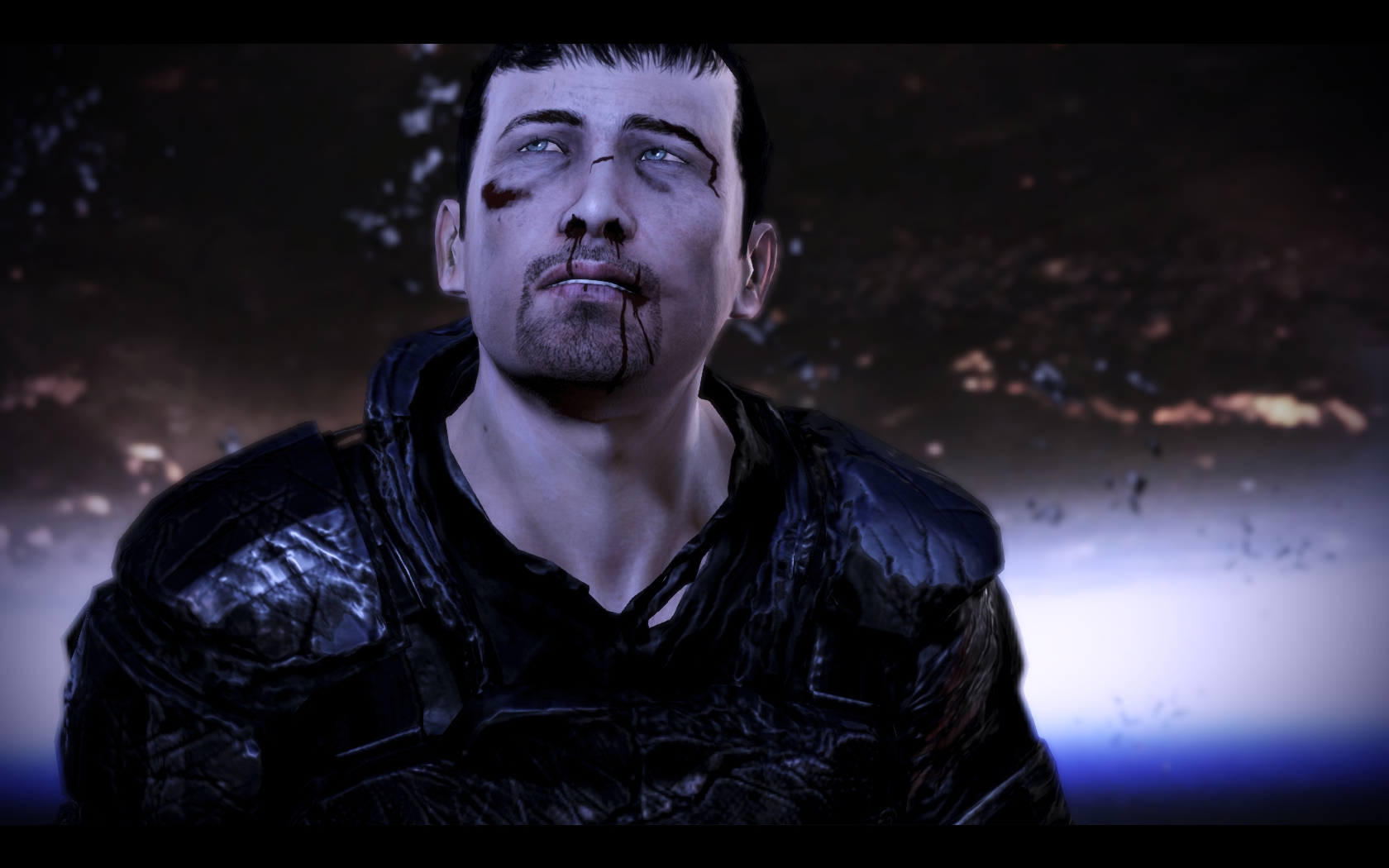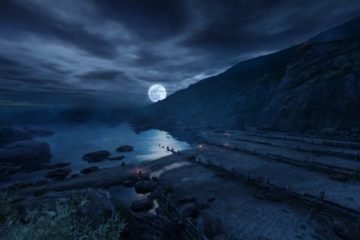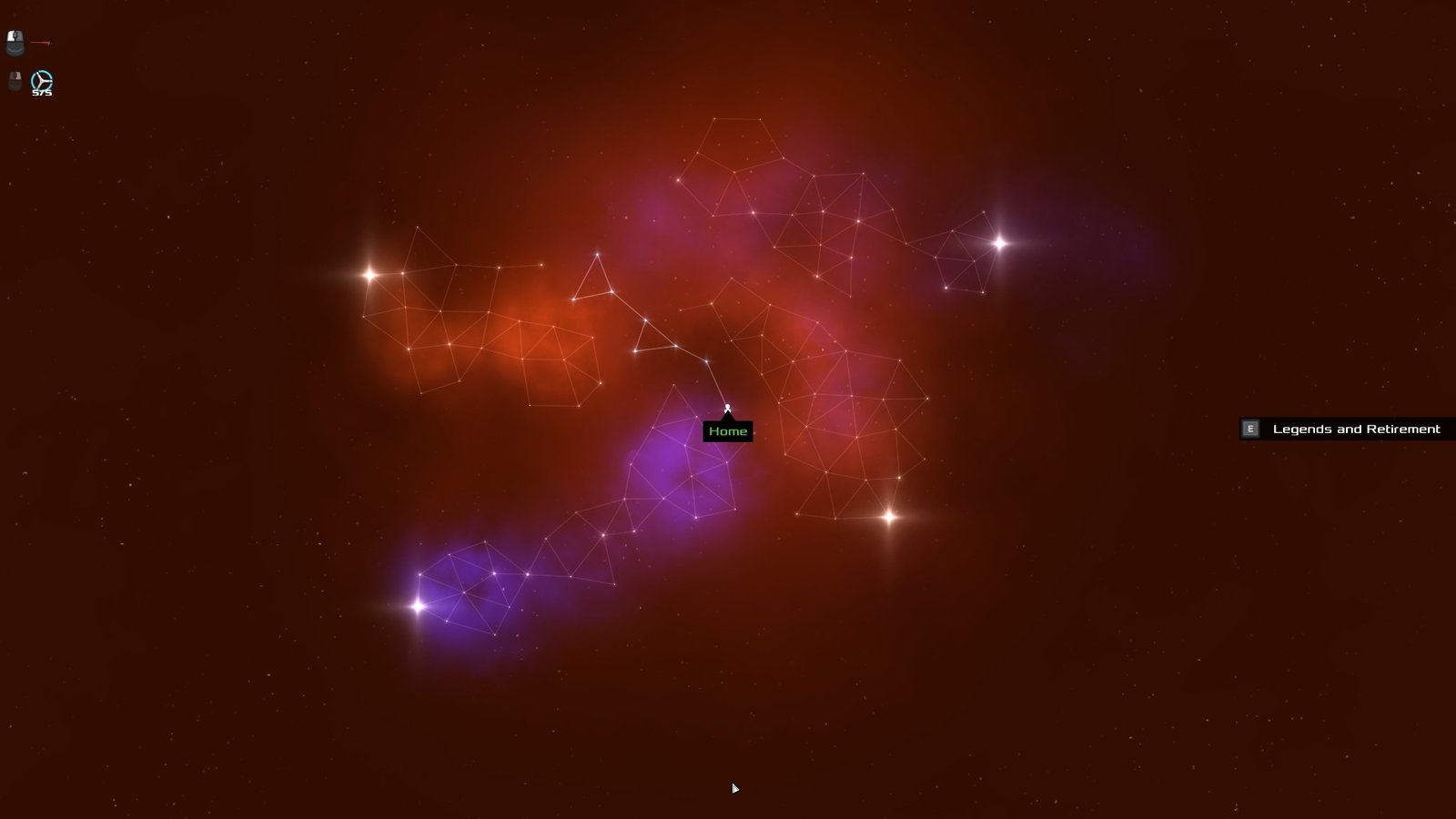The Star Trek Online beta finished this week, prior to the official launch in February. My brief time with it raised familiar questions, ones I’d first pondered back in 2004 when I first explored the MMOG (massive multiplayer online game) genre with the arrival of Blizzard’s World of Warcraft. Before addressing those broader issues in a future article, what of Star Trek Online, the latest attempt to find a foothold in a deeply monopolised market?
Star Trek Online
The Trek universe is absolutely perfect for an MMOG game, offering a wide and diverse fiction that includes clear factions, races and classes plus a frighteningly detailed timeline spanning almost half a decade of television, movies and novels. It has a built-in, hardcore fanbase plus an enthusiastic audience that only discovered it with 2009’s Star Trek movie, giving it a fighting chance against WoW’s dominance.

The gameplay design is twofold, combining traditional on-foot escapades controlled from the third person with epic, expansive spaceship combat . On first glance it appears to be the holy grail of space games, allowing you to not only fly from planet to planet but also walk upon its surface, something that most games don’t even attempt. Classics from the space genre such as Elite, X3 and Freelancer boil down planetside and space station activity to handy menus, while sci-fi RPGs like Mass Effect turn spaceflight into a light mini-game.
STO’s first mistake is in making the two aspects so distinct, separated by intrusive loading screens that create the feeling of two separate games rather than a cohesive experience and negating the feeling of a proper ‘universe’ – something that WoW and EVE‘s large game worlds manage superbly. While the third person view of the space sections is very pretty, it does little to create the sense of being captain of a giant interstellar starship. Key to Trek’s appeal has always been its crew, all working together to keep the ship going; here it feels like Picard or Kirk are sitting in a room with a joystick doing everything on their own. The experience consequently feels like piloting sluggish, single person fighter craft rather than enormous ships crewed by hundreds.

Which isn’t to say that it isn’t fun: in fact, it’s the most successful part of the game. Combat is refreshingly tactical, with weapons fire optimised in particular directions forcing you to constantly manoeuvre your ship for a better shot. It’s more reminiscent of naval combat than the usual Star Wars dogfighting.
Beam me down
One you teleport down to a planet’s surface the game loses much of its claims to originality, turning into an all-too-recognisable variation on the WoW template of targeting enemies and hitting various number keys to activate different offensive abilities, interspersed with copious amounts of text from NPCs who are demanding your services.

This kind of RPG combat can work, of course – Dragon Age succeeds in refining it into a deeply strategic model that feels every bit as exciting and dynamic as a first person shooter. WoW, while never doing a particularly good job of hiding its statistical mechanics, was nevertheless presented in a pleasing manner. The Star Trek universe is one of phasers, though, which draws more immediate parallels with third person shooters, a comparison that leaves STO feeling loose and fluffy – especially when it introduces concepts such as sprinting and evasive dives, which don’t mesh well with the behind-the-scenes dice rolling. The magical combat of fantasy RPGs leaves a certain amount of wiggle room when it comes to suspending disbelief: it’s more difficult to make gun-based combat exciting unless you’re the one actively aiming the weapon.
Even if this is primarily a matter of taste, STO lets itself down with clunky animation rather devoid of personality (despite the entertaining ability to choose your posture in the character creator) and obvious enemy spawning that repeatedly happens in front of your eyes (not even justified with some kind of transporter beam effect!).

Outside of combat there’s a strange mixture of voiced dialogue and plain text. This seems like a particularly unwise decision: you either voice all of your dialogue, or none of it. That the few snippets of acted dialogue are woefully performed and drearily written doesn’t help. The ultimate crime is the game’s total surrender when it comes to any kind of non-combat player action, which in all cases is reduced to pressing a single key and watching a progress bar marked ‘INTERACTING’ slowly creep from left to right. It’s soul destroying – if I’m told to operate a transporter beam I want to actively control the console, even if it’s just a simple mini-game. Boiling every single interaction down to a progress bar does nothing for the verisimilitude of the game world, keeping everything at arm’s length and making any supposed achievements decidedly dissatisfying.
Star Trek Galaxies
Star Wars Galaxies was released in 2003 to much excitement. Surely the Star Wars galaxy was ideal for an MMOG (or an MMORPG as they were absurdly monikered back then)? Instead it proved to hold limited appeal, failing to nail the essential feeling of being in Star Wars. Fast forward to 2011 and we’ll see the release of Star Wars: The Old Republic, the second attempt to create the perfect online Star Wars experience, this time crafted by Bioware. I suspect we’ll see something similar with Star Trek in due time. Another developer will come along, hopefully having learnt the lessons of previous attempts, and will better harness the core features of the Trek license. Hopefully by that point the tired WoW formula will have been superceded by some more innovative ideas.

Alternate timeline
Rather than a new interpretation of the WoW template, I would have liked to see something a little more radical with STO. While there are certain paths towards a properly persistent and player-generated universe that are too risky for most developers to take at this stage, there nevertheless seem to be some obvious missed opportunities.
The idea of being the captain of a starship in the Star Trek universe is hugely appealing. But I don’t want to be the only person on the ship, flying around feeling lonely. Star Trek, above all else, has always been about the benefits that emerge naturally when humans work together. When I’m on the bridge of my starship, I want to see my crew all around – the pilot, the navigator, the translator, the engineer – and I want them to be played by real people. The traditional roleplaying concept of a ‘guild’ could be adapted wonderfully to a single starship, crewed by a diverse group of players each bringing their own skills and interests.

I want to ride the turbolift and walk the corridors of the ship, watching people go about their duties, knowing that they are all being controlled by real humans elsewhere on the planet. When it’s time for battle stations, there should be a palpable tension as everybody does what they’ve been trained for. I want there to be the possibility of traitors, or of individual failure, of personal triumph in the face of adversity. Whether I’m the captain or a new recruit nervously donning his red shirt, I want to feel a part of something greater, a responsibility for the crew.
When things go bad and we’ve taken one too many photon torpedoes, I want to be part of the evacuation, to be part of the panic of an entire guild having to leave their beloved ship and race to the escape shuttles. Perhaps I want to be the captain that stays behind, plotting a collision course with the enemy ship (also populated by rival guild members, of course) so that it gives my crew the chance to escape. Maybe I’ll be able to beam to safety before the collision, or perhaps that will be the definitive end of that particular character. But it won’t feel like failure, because my character’s name will be remembered and spoken by the survivors.
That’s where Massively Multiplayer Online Games need to go.
When somebody makes that game, let me know.

Next time I’ll be taking a wider look at the MMOG genre to find out why it’s been spinning its wheels for so long and whether there’s a chance of any true innovation in the near future.




0 Comments
Eleanor · May 12, 2010 at 7:54 pm
Have you looked at Eve online? I got locked into a near bra room brawl over the MMOG Universe…such are my scintilating social engagements.
I thought it might be a good one to include in a future article on the subject of MMOG’s.
Also are you planning a secret meeting by dropping STO into the review?
Eleanor · May 12, 2010 at 7:59 pm
I can’t edit my post! I was NOT locked into a bra room brawl
“Surely the Star Wars galaxy was ideal for an MMOG (or an MMORPG as they were absurdly monikered back then)?” Better not let MMORPG.com see that 🙂